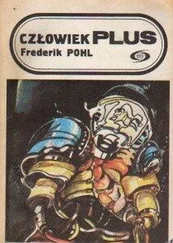She said, “Roger, I really don’t know how to deal with you. Are you angry with me?”
He watched the dancing colors silently.
“After all, Roger, we talked this out years ago. You have had affairs, and so have I. We agreed they didn’t mean anything.”
“They mean something when they hurt.” He willed his vision to stop, and welcomed the darkness as an aid to thought. “The others were different,” he said.
“Different how?” She was angry now.
“Different because we talked them over,” he said doggedly. “When I was in Algiers and you couldn’t stand the climate, that was one thing. What you did back here in Tonka and what I did in Algiers didn’t affect you and me. When I was in orbit—”
“I never slept with anybody else while you were in orbit!”
“I know that, Dorrie. I thought that was kind of you. I really did, because it wouldn’t have been fair, would it? I mean, my own opportunities were pretty limited. Old Yuli Bronin wasn’t my type. But now it’s different. It’s like I was in orbit again, only worse. I don’t even have Yuli! I not only don’t have a girl friend, I don’t have the equipment to do anything about it if I did.”
She said wretchedly, “I know all that. What can I tell you?”
“You can tell me you’ll be a good wife to me!” he roared.
That frightened her; he had forgotten what his voice could sound like. She began to cry.
He reached out to touch her and then let his hand fall. What was the use?
Oh, Christ, he thought. What a mess! He took consolation only in that this interview had been here, in the privacy of their own home, quite unplanned and secret. It would have been unbearable in the presence of anyone else; but naturally we had monitored every word.
Twelve
Two Simulations and a Reality
Copper-fingered Roger had blown more than a fuse. He had shorted a whole box of circuit breakers. It took twenty minutes to get the lights on again.
Fortunately the 3070 had stand-by power for its memory, so the cores were not wiped. The computations that were in process were compromised. All of them would have to be done over again. The automatic surveillance was out of service until long after Roger was gone.
One of the first ones to know what had happened was Sulie Carpenter, catching a cat nap in the office next to the computer room, waiting for Roger’s simulation to finish. It didn’t finish. The alarm bells signifying interruption of the information being processed woke her. The bright fluorescent rod-lights were out, and only the red incandescents gave a dim, despairing glow.
Her first thought was her precious simulation. She spent twenty minutes with the programmers, studying the partial printout, hoping that it would be all right, before she gave up and charged out to Vern Scanyon’s office. That was when she found out that Roger had run off.
Power was back by then; it had come on while she was taking the fire stairs two at a time. Scanyon was already on the phone, ordering the people he wanted to blame in for an emergency conference. Clara Bly was the one who told Sulie about Roger; one by one, as the others entered the room, they were brought up to date. Don Kayman was the only major figure who was out of the project; they located him watching television in his clerical condominium. Kathleen Doughty came up from the physiotherapy room in the basement, dragging Brad with her, all pink-skinned and damp; he had been trying to substitute an hour in the sauna for a night’s sleep. Freeling was at Merritt Island, but not needed particularly; half a dozen others came in and slumped, dispiritedly or worriedly, into the leather chairs around the conference table.
Scanyon had already ordered an Air Force spottercopter into the air, in a search pattern all around the project. Its TV cameras were sweeping the freeway, the access roads, the parking lots, the fields and prairie, and displaying what they saw on the wall TV at the end of the room. The Tonka police force had been alerted to watch for a strange devil-like creature running around at seventy kilometers an hour, which had led to trouble for the Tonka desk sergeant. He made a bad mistake. He asked the project security officer if he had been drinking. Ten seconds later, with his head filled with visions of pounding a beat in Kiska, the sergeant was on the police radio to all vehicles and foot patrolmen. The orders for the police were not to arrest Roger, not even to approach him. They were only to find him.
What Scanyon wanted was someone to blame. “I hold you responsible, Dr. Ramez,” he barked at the staff shrink. “You and Major Carpenter. How could you let Torraway get into this sort of action without advance warning?”
Ramez said placatingly, “General, I told you Roger was unstable with regard to his wife. That’s why I asked for someone like Sulie. He needed another object to fixate on, someone directly connected with the project—”
“Didn’t work very well, did it?”
Sulie stopped listening. She knew very well that her turn was next, but she was trying to think. Over Scanyon’s desk she saw the moving view from the copter. It was expressed as a schematic, the roads as lines of green, the vehicles as points of blue, buildings yellow. The few pedestrians were bright red. Now, if one of those red dots should suddenly start to move at the speed of a blue vehicle, that would be Roger. But he had had plenty of time to get farther away than the area the copter was covering.
“Tell them to scan the town, General,” she said suddenly.
He frowned, but he picked up the phone and gave the order. He didn’t get a chance to put it down again; there was an incoming call he could not refuse.
Telly Ramez got up from his chair next to the director and came around to Sulie Carpenter. She didn’t look up from the folded transcript of the simulation. He waited patiently.
The director’s call was from the President of the United States. They would have known that from the sweat that rolled down beneath Scanyon’s temples, even if they had not seen Dash’s tiny face in the screen on the director’s desk. Faintly the voice leaked through to them: “…spoke to Roger he seemed — I don’t know, disinterested. I thought it over, Vern, and then I decided to call you. Is everything going all right?”
Scanyon swallowed. He glanced around the table and abruptly folded up the privacy petals on the phone; the image dwindled to postage-stamp size. The voice faded to nothingness as the sound was transferred to a parabolic speaker aimed directly at Scanyon’s head, and Scanyon’s own words were swallowed by the petal-like shields. The rest of the room had no difficulty in following the conversation anyway; it was written very clearly on Scanyon’s face.
Sulie looked up from the transcript at Telly Ramez. “Get him off the phone,” she said impatiently. “I know where Roger is.”
Ramez said, “At his wife’s house.”
She rubbed her eyes wearily. “I guess we didn’t need a simulation for that, did we? I’m sorry, Telly. I guess I wasn’t keeping him on the hook as firmly as I thought I was.”
They were right; of course; we had known that for some time. As soon as Scanyon got off the phone with the President the security office called to say that the bugs in Dorrie’s bedroom had picked up the sound of Roger coming in through the window.
Scanyon’s lemony small eyes seemed almost at the point of tears. “Put the sound on the horn,” he ordered. “Display the house.” And then he switched his phone to an outside line and dialed Dorrie’s number.
From the loudspeaker came the sound of one ring, then a metallic noise and Roger’s flat cyborg voice rasping, “Hello?” And a moment later, softer but equally toneless, “Christ.”
Читать дальше












